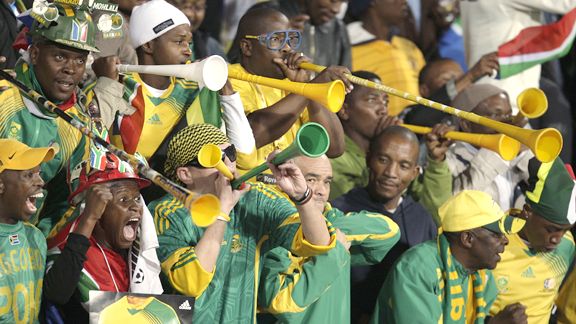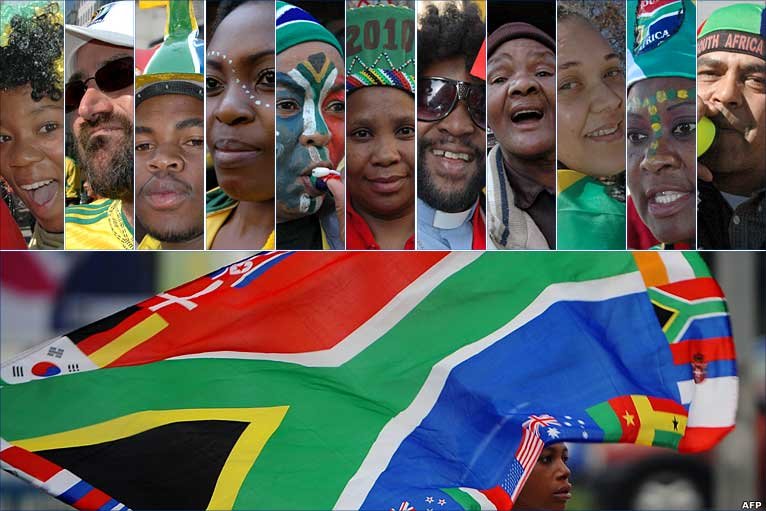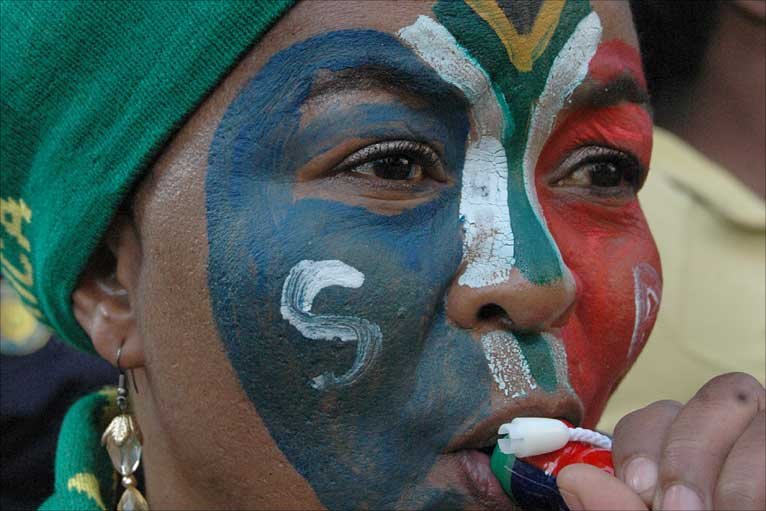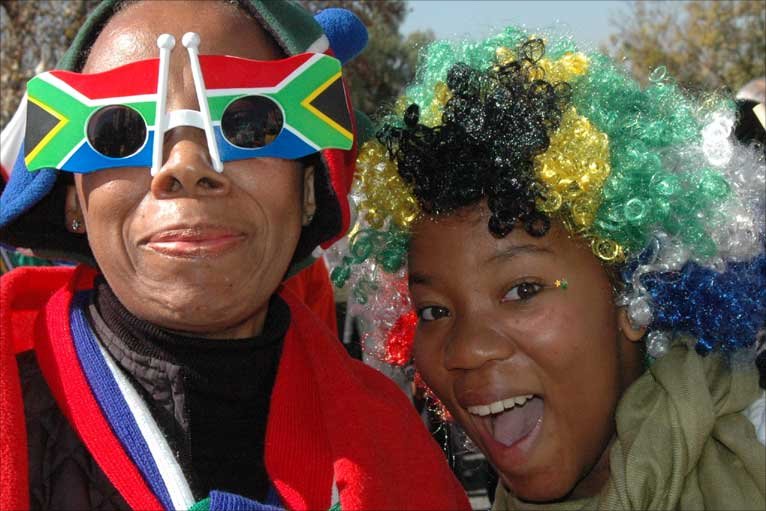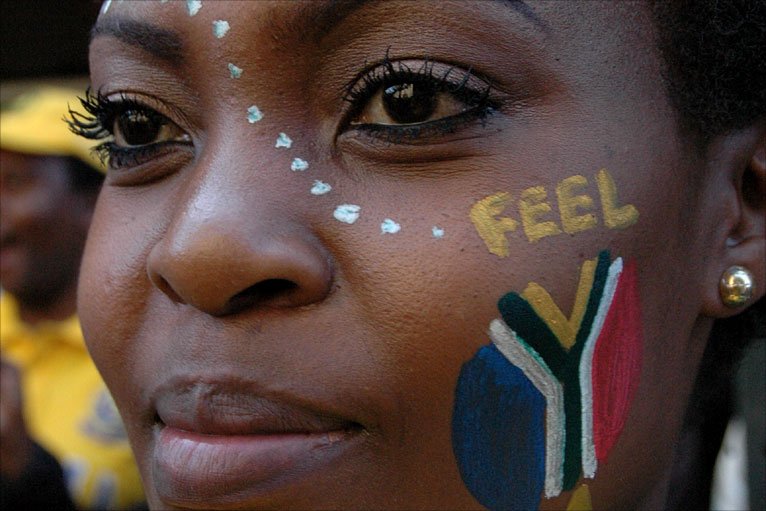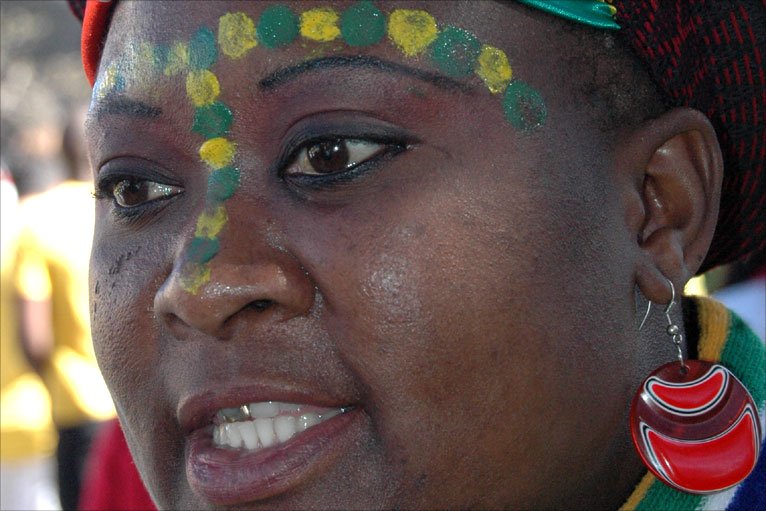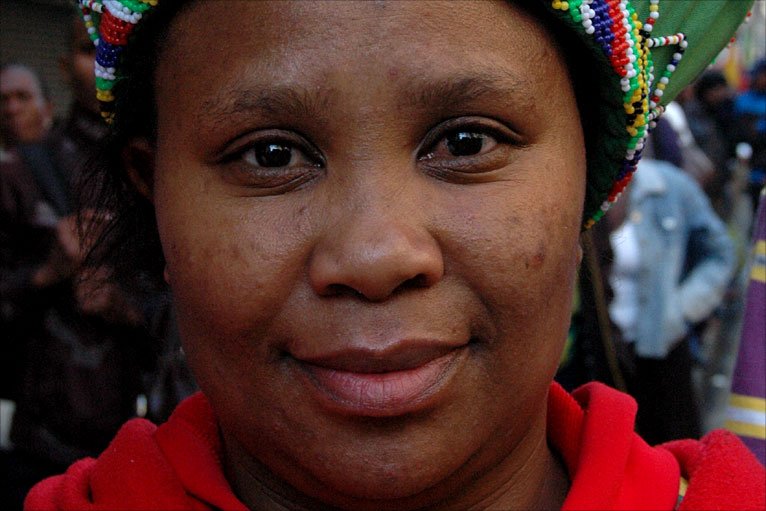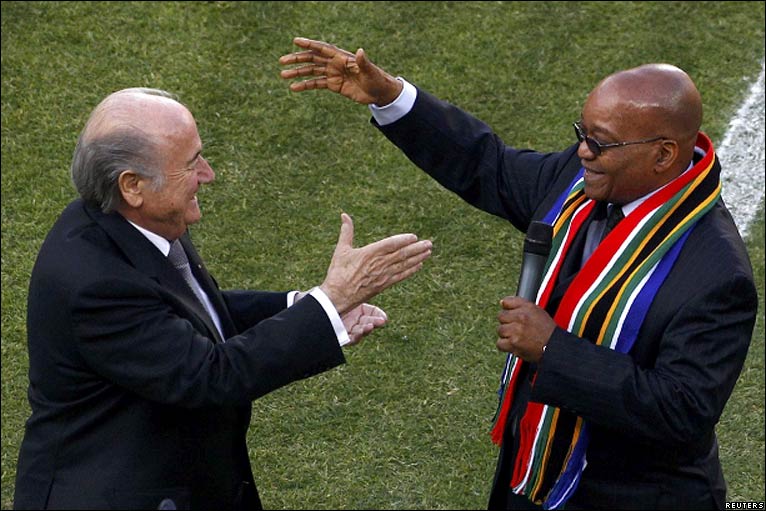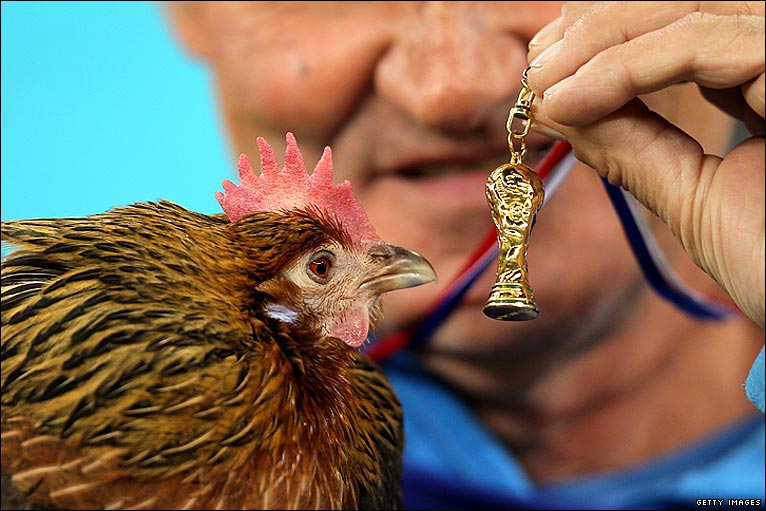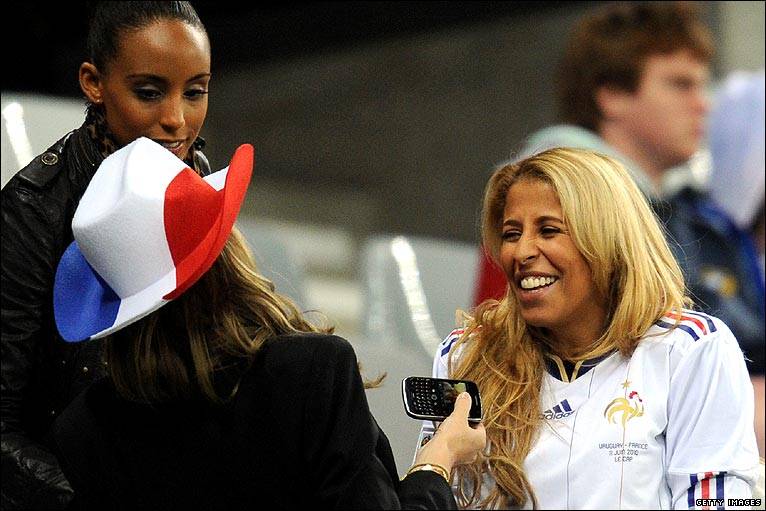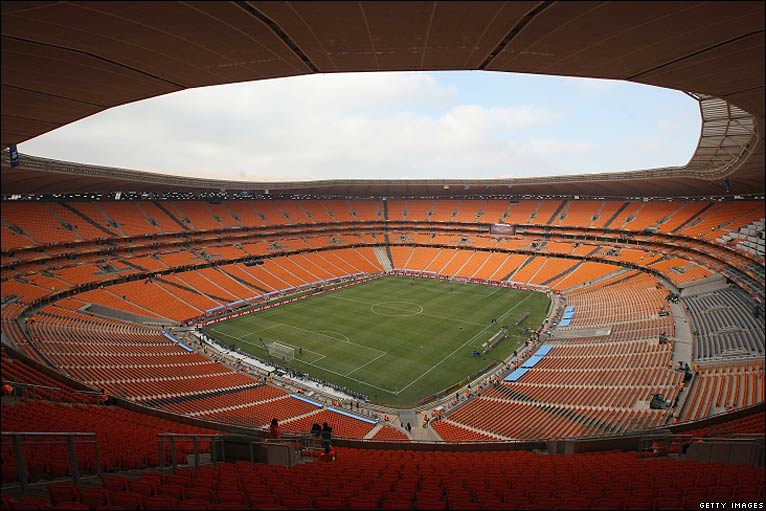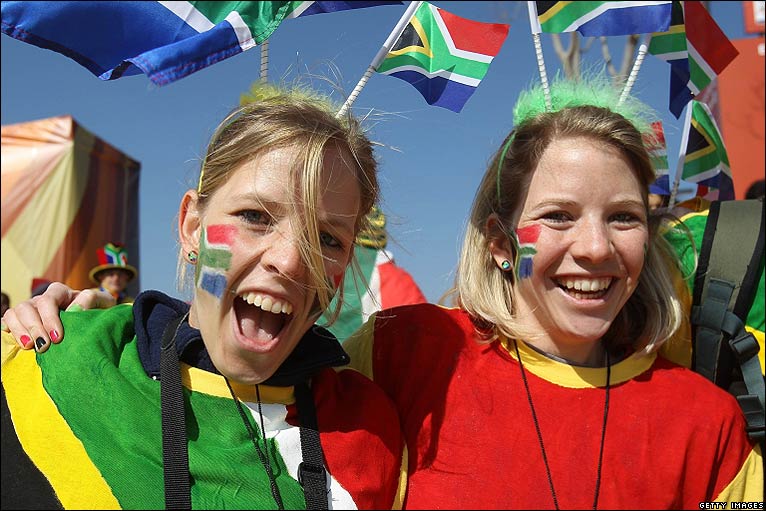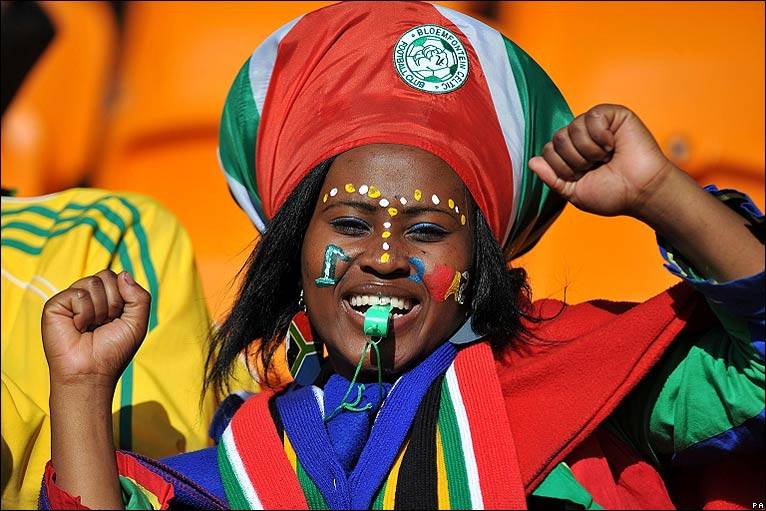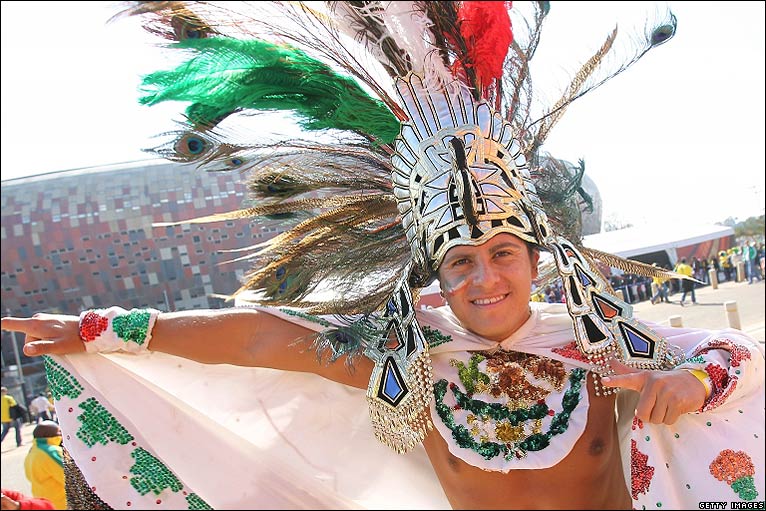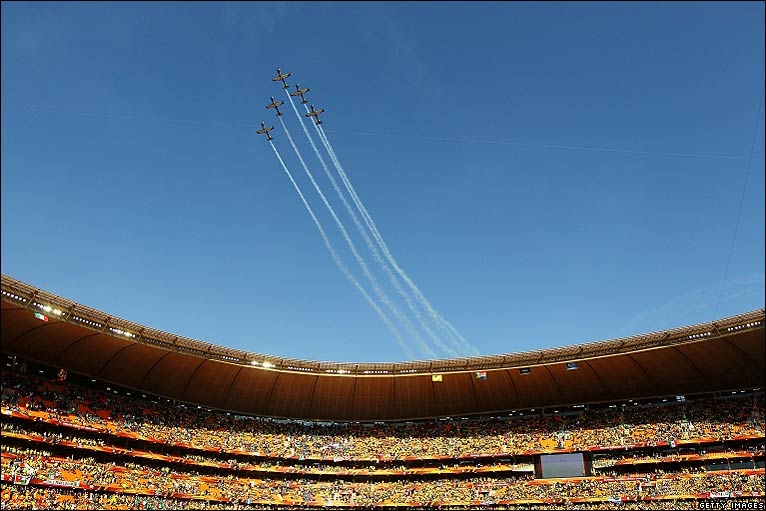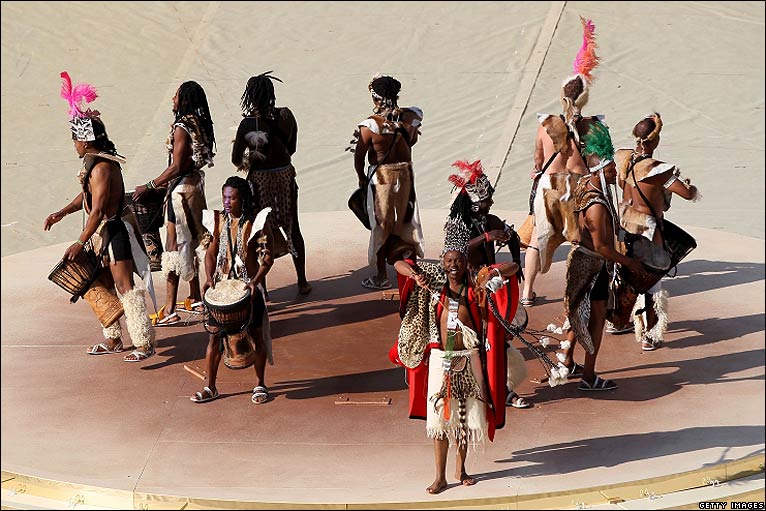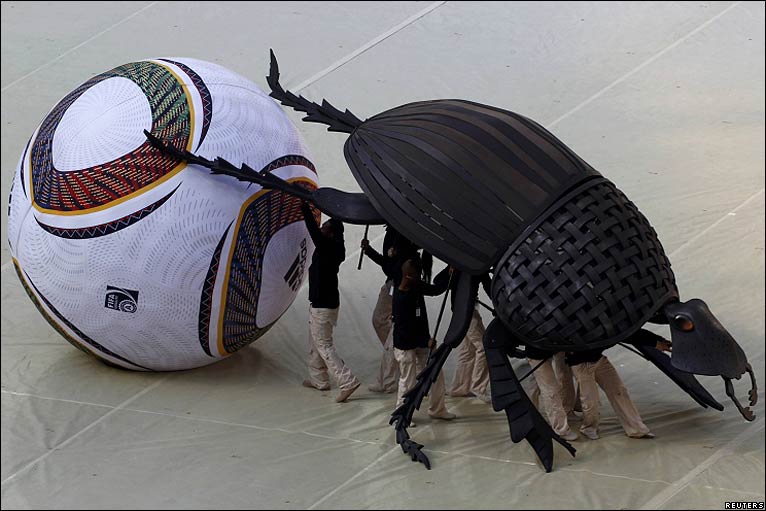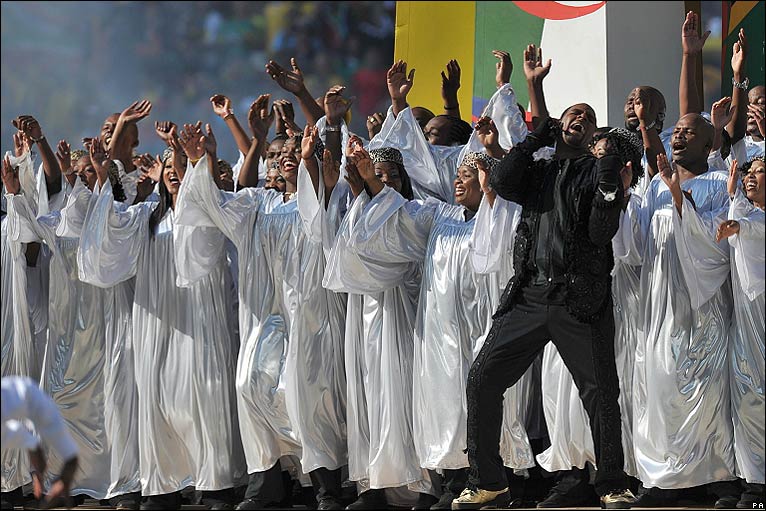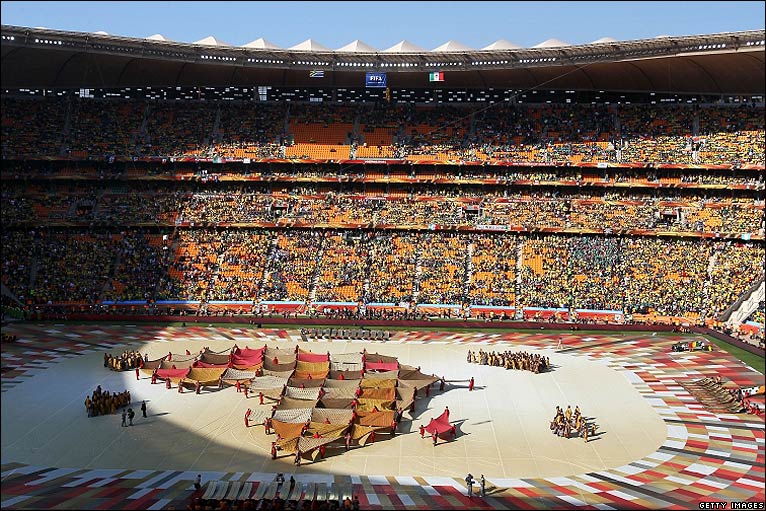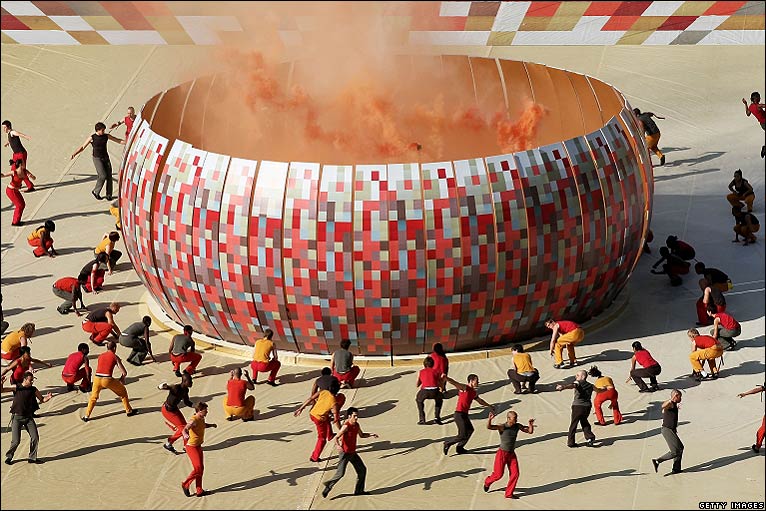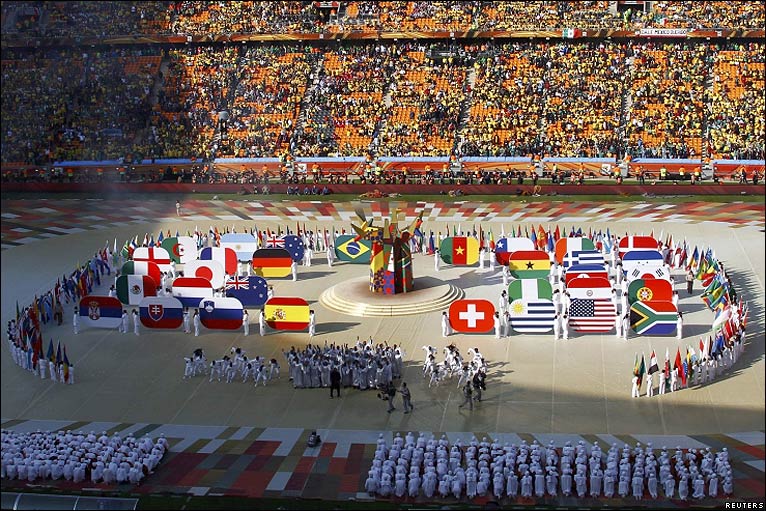BAK
JF-Expert Member
- Feb 11, 2007
- 124,789
- 288,015
Why does the World Cup matter?
Because soccer is the No. 1 spectator sport on the planet
Last Updated: Wednesday, June 9, 2010 | 12:42 PM ET

Italian players celebrate as Fabio Cannavaro lifts the World Cup trophy aloft following the Azzurri's World Cup victory in 2006 in Germany. (Shaun Botterill/Getty Images) Football. Futbol. Voetbal. Futebol. Fußball. Fotboll. Calcio.
Soccer.
No matter what you call it, no other sport comes close to matching the worldwide passion for the beautiful game.
Soccer is the world's most popular sport. It is the No. 1 sport played in every corner of the planet. It is the global game. And the World Cup, the biggest and most-watched sports event in the world, is soccer's showcase event, drawing massive global attention.
It begs the question: why?
Why will a cumulative audience of 30 billion viewers around the worldwatch some part of the FIFA World Cup in South Africa from June 11 to July 11?
As trite and glib as it may sound, soccer is much more than just a sport for hundreds of millions of people around the world, it is the ultimate cultural expression.
"Football is universal language that we speak with different accents," explained Tim Vickery, a Rio-based soccer journalist.
"The biggest patriotic act that most people engage in is cheering on their team during the World Cup. It reaches people who have no interest in football otherwise. It reaches them at a profound level because it is their country and their people being represented in the eyes of the rest of the world."
Religious-like following
The power of representivity is, by no means, unique to soccer, but the World Cup manages to elicit a more passionate, fervent and almost religious-like following from more fans around the planet than any other event, including the Olympics.
"Unlike the Olympics, the World Cup is the only truly, single-sport global event," said Nigel Reed, soccer commentator for CBC Sports.
"The tournament has a way of enabling citizens to puff out their chest; of giving them licence to say 'this is our team' and having some pride in their nation, and no other sporting event does that because no other sport truly embraces so many people from every corner of the globe."
There are other factors involved, as well.
There is a simplicity to soccer, and that is its greatest asset it is more accessible than other sports to the average fan.
"The World Cup is the biggest sports event in the world because football itself is the most popular sport in the world, and it's the most popular sport in the world because it's the simplest sport," explained Paddy Agnew, a Rome-based soccer reporter for the Irish Times.
"The rules of baseball, of American football, of rugby, of cricket, or ice hockey they're all more complicated than football, and that has led to football spreading to more parts of the world than any sport."
Henry Winter agrees.
"Football is the simplest game to play. You can play the game anywhere," stated Winter, chief soccer correspondent for the Daily Telegraph in England. "Go anywhere around the world there's a game going on, whether it's Sunday morning in Hyde Park with people using jackets for goal posts, or some shanty town in Africa with kids kicking a ball made out of scraps of cloth."
'Anyone can play it'
Carlos Bocanegra, who is set to play in his second consecutive World Cup, believes the sport enjoys overwhelming global popularity because it is the game of the common man.
"Anyone can play it," said the American defender. "You don't have to be the biggest, you don't have to be the fastest, the tallest, or event strongest to play football. It's an Everyman's game. A lot of people can relate to it in that sense."
His teammate, midfielder Michael Bradley, who is set to compete in his first World Cup this month in South Africa, is continually blown away by how the "for that one month, every four years, the world stops when the World Cup is on.
"The joy that people have of watching their country play at the World Cup, and the excitement and the passion that it elicits is something that no other event be it in the field of sports, entertainment or politics in the world can match," Bradley boldly stated.
But don't people get just as excited when the Olympics happen every four years?
"If you look at the Olympics, people go to events to watch sports they don't watch for three years," opined Bobby Lenarduzzi, who played for Canada at the 1986 World Cup in Mexico.
"But when you talk about the World Cup, there's a greater fascination with it because more people around the world watch soccer every day of every month of every year."
As coach of the U.S. national team, Bob Bradley has seen first-hand what the World Cup means to people and how it transcends mere sport.
"When you travel around the world, to different countries, the passion in each country for its team and what it means to all the people to see their team play at the World Cup, that's what makes the World Cup unique and so special," Bradley said.
Soccer transcends economic status
Former Canadian national team coach Tony Waiters expands on Bradley's view, pointing out that soccer is the great economic equalizer, used by some of the sport's all-time greats, including Pele and Diego Maradona, to escape abject poverty
"I've been to 82 countries in the world in my travels for soccer. It's the language of the world. It removes all obstacles and boundaries," Waiters stated.
That soccer remains so popular in this day and age when the non-stop proliferation of media and technology is so staggering speaks to the inherent appeal of the game.
"In today's very fragmented media society, the World Cup is one of the last massive events where you know entire nations are watching at the same time, and that's going to be the conversation around the water cooler in the morning," said Raphael Honigstein, a soccer journalist for German newspaper Sueddeutsche Zeitung.
Mark Gleeson, a Cape Town-based soccer reporter for Reuters, may have the simplest, but at the same time most profound, explanation behind soccer's popularity.
"Simply put, football matters, and by extension, the World Cup matters," Gleeson stated. "It's the world game and you have this amazing confluence of the sport's best players coming together in one spot for a month.
"It's magic."
Because soccer is the No. 1 spectator sport on the planet
Last Updated: Wednesday, June 9, 2010 | 12:42 PM ET

Italian players celebrate as Fabio Cannavaro lifts the World Cup trophy aloft following the Azzurri's World Cup victory in 2006 in Germany. (Shaun Botterill/Getty Images) Football. Futbol. Voetbal. Futebol. Fußball. Fotboll. Calcio.
Soccer.
No matter what you call it, no other sport comes close to matching the worldwide passion for the beautiful game.
Soccer is the world's most popular sport. It is the No. 1 sport played in every corner of the planet. It is the global game. And the World Cup, the biggest and most-watched sports event in the world, is soccer's showcase event, drawing massive global attention.
It begs the question: why?
Why will a cumulative audience of 30 billion viewers around the worldwatch some part of the FIFA World Cup in South Africa from June 11 to July 11?
As trite and glib as it may sound, soccer is much more than just a sport for hundreds of millions of people around the world, it is the ultimate cultural expression.
"Football is universal language that we speak with different accents," explained Tim Vickery, a Rio-based soccer journalist.
"The biggest patriotic act that most people engage in is cheering on their team during the World Cup. It reaches people who have no interest in football otherwise. It reaches them at a profound level because it is their country and their people being represented in the eyes of the rest of the world."
Religious-like following
The power of representivity is, by no means, unique to soccer, but the World Cup manages to elicit a more passionate, fervent and almost religious-like following from more fans around the planet than any other event, including the Olympics.
"Unlike the Olympics, the World Cup is the only truly, single-sport global event," said Nigel Reed, soccer commentator for CBC Sports.
"The tournament has a way of enabling citizens to puff out their chest; of giving them licence to say 'this is our team' and having some pride in their nation, and no other sporting event does that because no other sport truly embraces so many people from every corner of the globe."
There are other factors involved, as well.
There is a simplicity to soccer, and that is its greatest asset it is more accessible than other sports to the average fan.
"The World Cup is the biggest sports event in the world because football itself is the most popular sport in the world, and it's the most popular sport in the world because it's the simplest sport," explained Paddy Agnew, a Rome-based soccer reporter for the Irish Times.
"The rules of baseball, of American football, of rugby, of cricket, or ice hockey they're all more complicated than football, and that has led to football spreading to more parts of the world than any sport."
Henry Winter agrees.
"Football is the simplest game to play. You can play the game anywhere," stated Winter, chief soccer correspondent for the Daily Telegraph in England. "Go anywhere around the world there's a game going on, whether it's Sunday morning in Hyde Park with people using jackets for goal posts, or some shanty town in Africa with kids kicking a ball made out of scraps of cloth."
'Anyone can play it'
Carlos Bocanegra, who is set to play in his second consecutive World Cup, believes the sport enjoys overwhelming global popularity because it is the game of the common man.
"Anyone can play it," said the American defender. "You don't have to be the biggest, you don't have to be the fastest, the tallest, or event strongest to play football. It's an Everyman's game. A lot of people can relate to it in that sense."
His teammate, midfielder Michael Bradley, who is set to compete in his first World Cup this month in South Africa, is continually blown away by how the "for that one month, every four years, the world stops when the World Cup is on.
"The joy that people have of watching their country play at the World Cup, and the excitement and the passion that it elicits is something that no other event be it in the field of sports, entertainment or politics in the world can match," Bradley boldly stated.
But don't people get just as excited when the Olympics happen every four years?
"If you look at the Olympics, people go to events to watch sports they don't watch for three years," opined Bobby Lenarduzzi, who played for Canada at the 1986 World Cup in Mexico.
"But when you talk about the World Cup, there's a greater fascination with it because more people around the world watch soccer every day of every month of every year."
As coach of the U.S. national team, Bob Bradley has seen first-hand what the World Cup means to people and how it transcends mere sport.
"When you travel around the world, to different countries, the passion in each country for its team and what it means to all the people to see their team play at the World Cup, that's what makes the World Cup unique and so special," Bradley said.
Soccer transcends economic status
Former Canadian national team coach Tony Waiters expands on Bradley's view, pointing out that soccer is the great economic equalizer, used by some of the sport's all-time greats, including Pele and Diego Maradona, to escape abject poverty
"I've been to 82 countries in the world in my travels for soccer. It's the language of the world. It removes all obstacles and boundaries," Waiters stated.
That soccer remains so popular in this day and age when the non-stop proliferation of media and technology is so staggering speaks to the inherent appeal of the game.
"In today's very fragmented media society, the World Cup is one of the last massive events where you know entire nations are watching at the same time, and that's going to be the conversation around the water cooler in the morning," said Raphael Honigstein, a soccer journalist for German newspaper Sueddeutsche Zeitung.
Mark Gleeson, a Cape Town-based soccer reporter for Reuters, may have the simplest, but at the same time most profound, explanation behind soccer's popularity.
"Simply put, football matters, and by extension, the World Cup matters," Gleeson stated. "It's the world game and you have this amazing confluence of the sport's best players coming together in one spot for a month.
"It's magic."












